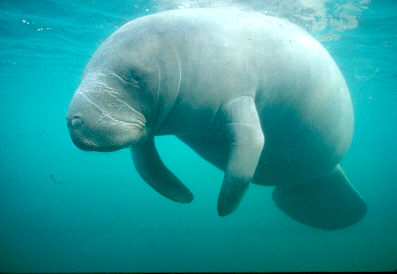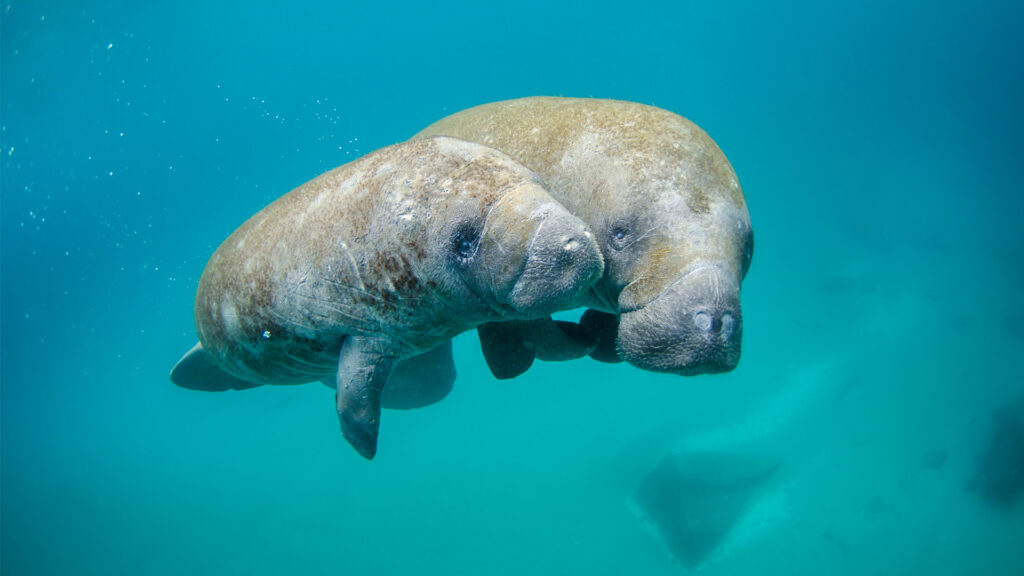By the TCPalm/Treasure Coast Newspapers Editorial Board

There’s a lot to love about manatees. Literally. The gentle marine creatures typically weigh about 1,000 pounds when they reach adulthood, although some grow considerably heavier.
Unlike some of the other large creatures that inhabit Florida’s waters, like alligators and sharks, most tourists and locals alike seem to love sea cows. And, as best we can tell, they love us back. Or, at worst, the slow-moving mammals regard humans with benevolent indifference.
Therefore, it didn’t come as a huge shock earlier this month when a consortium of environmentally oriented groups sent the U.S. Fish and Wildlife Service notice of its plans to sue the federal agency for failing to adequately protect manatees.
The plaintiffs aren’t the first to take legal action on the manatees’ behalf and, sadly, they probably won’t be the last. Despite numerous legal and bureaucratic actions taken with manatees’ best interests at heart, the creatures remain on the federal government’s “threatened species” list.
While there seems to be near-unanimous agreement (aside from a few boaters cranky about slow-speed zones) about the value of protecting manatees, there also seems to be a general unwillingness to directly address the greatest danger they face.
Which is more than a little ironic, because by saving manatees, we would also be saving the waters upon which our local economy and many of our own recreational activities depend.
Simply put, saving manatees won’t happen without saving our water.
It’s all well and good to start manatee feeding programs, like the one launched in December 2021 after a record number of manatee deaths due to starvation. But manatees aren’t biologically wired to eat lettuce. They crave the seagrass that grows along the sandy bottom of the Indian River Lagoon and connected waterways.
What’s killing seagrass is pollution. And a great deal of it is coming from agricultural runoff and sewage discharges.
Bear Warriors United, a wildlife protection nonprofit, had the right idea when it filed a federal lawsuit against the Florida Department of Environmental Protection in February. The lawsuit alleges the state agency violated the Endangered Species Act by allowing manatees to be killed in the lagoon’s northern section by failing to properly regulate polluters.
Lesley Blackner, the plaintiffs’ attorney, said she “just connected the dots” between septic and sewer plant discharges into the lagoon and manatees that died after losing their food source.
A similar approach has worked before. In the mid-1990s, Blackner represented New Smyrna Beach residents who thought Volusia County’s policy of allowing beach driving endangered sea turtles. Blackner’s clients won, and the county was forced to sharply limit places where its tradition of beach driving is allowed.
In that case, she used the Endangered Species Act to compel a local government to act more forcefully. If the Bear Warriors lawsuit is successful, the act might be used to require the state to limit sewage discharges into the portions of the lagoon within Volusia and Brevard counties.
While different government agencies have thrown dribs and drabs of money at programs that incrementally clean the lagoon, Blackner said more drastic measures are needed.
“We have to have a come-to-Jesus moment on the lagoon,” she said. “That hasn’t happened yet.”

Maybe we are heading in the right direction, though. While it’s debatable whether downgrading the manatees’ federal status from “threatened” to “endangered” would make a big difference, getting rid of pollution that’s destroying their food certainly could.
Do state government officials really have to wait until another lawsuit is filed on behalf of manatees living in the southern portion of the lagoon? Maybe they could finally get in front of the problem and put more urgency into cleanup ― to benefit us all.
People who use the lagoon benefit from cleaner water, too. There was a time when we didn’t think twice about swimming in the lagoon or eating fish caught in it. This isn’t an issue of interest only to soft-hearted liberals. The Treasure Coast’s economy is heavily dependent upon clean water to support tourism, fishing and other marine-oriented industries.
Despite the obvious size difference, manatees are the proverbial canaries in the coal mine. If they’re not able to survive in the lagoon’s waters, then the days when humans will be able to use them are numbered.
We can root for manatees because they’re cute and cuddly looking. We also need to protect them because our fates are more closely tied to theirs than we might think.
This opinion piece was originally published by TCPalm/Treasure Coast Newspapers, which is a media partner of The Invading Sea. Editorials published by TCPalm/Treasure Coast Newspapers are decided collectively by its editorial board.
If you are interested in submitting an opinion piece to The Invading Sea, email Editor Nathan Crabbe at nc*****@*au.edu. Sign up for The Invading Sea newsletter by visiting here.



